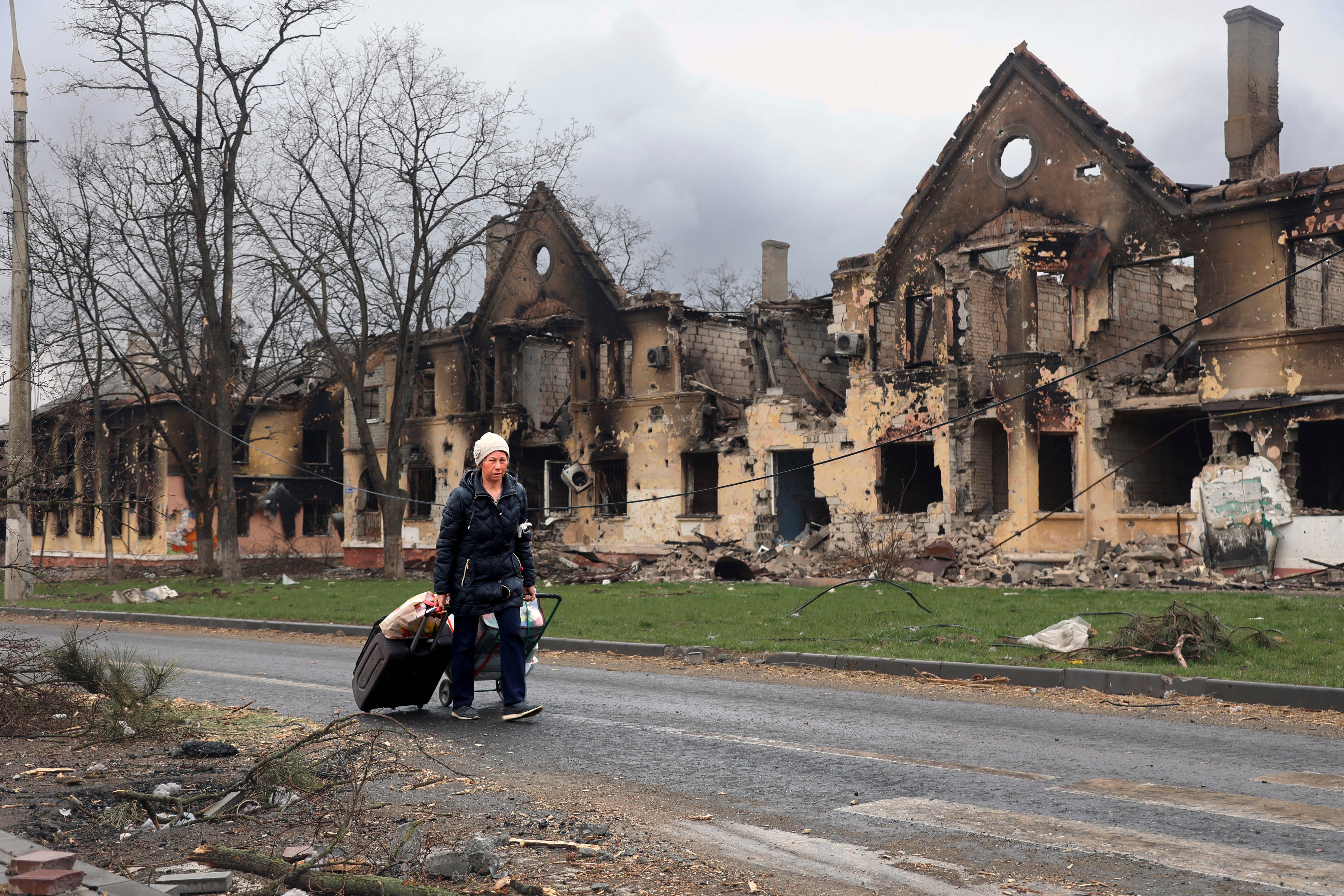EXPLAINER: How to investigate alleged chemical attacks
Ukraine says it is investigating a claim that a poisonous substance was dropped on the besieged city of Mariupol

Ukraine said Tuesday it is investigating a claim that a poisonous substance was dropped on the besieged city of Mariupol. Deputy Defense Minister Hanna Maliar said it was possible that phosphorus munitions — which cause horrendous burns but are not classed as chemical weapons — had been used.
Now the question is how to establish the truth amid the fog of war that has descended over a city still under attack from Russian forces. A clear answer is unlikely to emerge any time soon.
WHO COULD INVESTIGATE?
First in line to investigate in Ukraine is the country's own law enforcement agencies. There also are teams from other nations investigating allegations - particularly around Bucha - of war crimes and the International Criminal Court has launched an investigation in Ukraine. The Organization for the Prohibition of Chemical Weapons has, so far, not announced any kind of investigation in Ukraine, although it says on its website that its secretariat “is monitoring the status of relevant chemical industrial facilities and any threats of use of toxic chemicals as weapons in the country.”
Marc-Michael Blum, former head of the OPCW's laboratory and now an independent consultant, said the organization won't send a team to Mariupol any time soon to investigate.
“We have an active war zone where the OPCW would not send a team in because the security of the team cannot be guaranteed,” Blum told The Associated Press in a telephone interview.
HOW ARE SUSPECTED CHEMICAL ATTACKS INVESTIGATED?
If a team of experts were able to investigate what was used and by whom, it would seek to build a dossier of evidence based on laboratory tests of samples collected at the scene and from victims. That means taking soil samples and testing them for traces of possible chemical weapons or other munitions. Samples of blood and urine from victims who were exposed to the munition would also be tested. And then investigators would seek to interview witnesses and survivors to build a picture of what they experienced and physicians who treated them. In past investigations, experts have studied gas dispersion models, and topographic charts and looked at digital images. The OPCW has experience building such investigations in Syria, where its experts have confirmed the use of chemical weapons on multiple occasions. Damascus denies using chemical weapons.
WHAT HAPPENED IN PREVIOUS CASES OF CHEMICAL WEAPONS USE ELSEWHERE?
Hundreds of people were killed in gas poisoning attacks in Syria during the country’s civil war. The OPCW faced numerous hurdles and Russian vetoes complicating the establishment of investigation mechanisms. To this day, no one has been held accountable.
Two recent cases outside Syria show how a suspected chemical weapon use can be investigated by local authorities — the poisoning in 2020 of Russian opposition figure Alexei Navalny and of former double agent Sergei Skripal and his daughter in the English city of Salisbury in 2018.
In those cases, authorities in Germany, where Navalny went for treatment, and in the United Kingdom in the case of the Skripals, took and tested biological samples and concluded that they were targeted with a Soviet-era nerve agent known as Novichok. In those cases, the OPCW tested the samples and confirmed the findings by national authorities. Russia denied involvement in both attacks.
IF PHOSPHORUS WAS USED IN MARIUPOL, IS IT ILLEGAL?
Phosphorus munitions are not considered chemical weapons. Most armies have phosphorus munitions to use for illuminating battlefields or targets or to produce smoke screens. However, if an army deliberately fired a phosphorus munition into an enclosed space in order to expose people to toxic fumes, it could be a breach of the Chemical Weapons Convention, said Blum.
“Once you start using the properties of white phosphorus, toxic properties, specifically and deliberately then it becomes banned,” he said.
WHAT ARE THE CHANCES OF A SUCCESSFUL INVESTIGATION IN BESIEGED MARIUPOL?
Blum is not optimistic. “Given the current situation we have Mariupol, almost impossible to really pin down, and so I have no high hopes for any any kind of investigation,” he said.
___
Follow the AP’s coverage of the war at https://apnews.com/hub/russia-ukraine